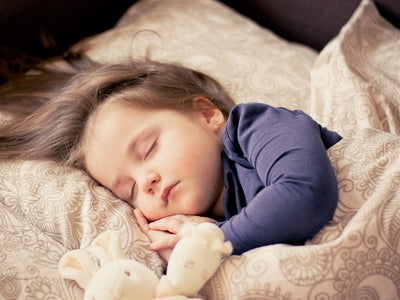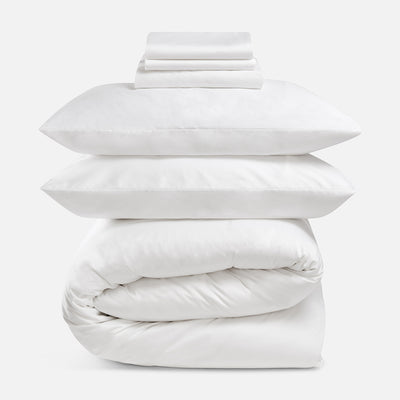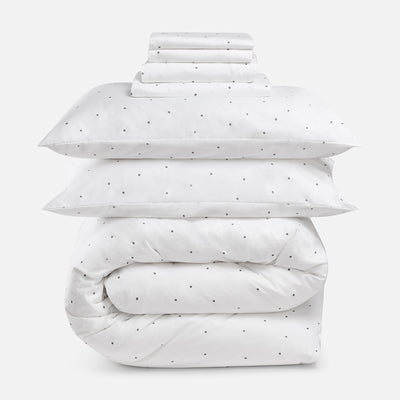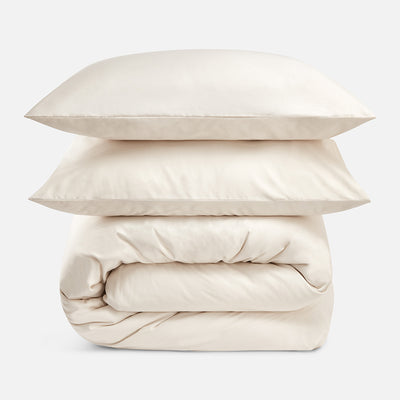
With so many conflicting ‘do’s and don’ts’ surrounding the topic of sleep, we’re often left unsure of what to do for the best when it comes to getting in those all-important zzz’s. That’s why we’ve compiled a list of some of the most widely-held beliefs about sleep, in order to help you sort the facts from the fables.
#1. Looking at screens before bed can keep you awake
True. A study conducted by a team of neuroscientists from Harvard University has shown that looking at screens such as those on our phones, tablets and TVs within the 2 hours before bed can have negative effects on our overall sleep quality. This research found that using these devices at bedtime can have the following detrimental effects on our sleep:
- Prolongs the amount of time it takes us to fall asleep
- Delays our circadian clock (body clock)
- Suppresses our melatonin levels (our sleep-promoting hormone)
- Decreases REM sleep (the sleep phase that restores our mind and body)
- Reduces alertness the following morning
#2. Alcohol can help you get a good night’s sleep
False. We know how relaxing it is to unwind in the evening with a nice drink or two, but research has shown that drinking alcohol before bed can actually result in poor sleep. “But alcohol increases drowsiness, so why would it prevent us from sleeping well?” I hear you ask. Well, the medical director of the Edinburgh Sleep Centre, Chris Idzikowski explains: “alcohol on the whole is not useful for improving a whole night's sleep. Sleep may be deeper to start with, but then becomes disrupted. Additionally, that deeper sleep will probably promote snoring and poorer breathing. So, one shouldn't expect better sleep with alcohol."
#3. You need at least 7 hours of sleep each night
True (to an extent). The NSF (National Sleep Foundation) recommend that adults aged 18-64 should be aiming for a minimum of 7 and a maximum of 9 hours of sleep each night. However, different people need different amounts of sleep depending on a huge variety of variables, including age, individual characteristics and even genes. To find our more about how much sleep you need each night, see our recent post which answers the question ‘How Much Sleep Do We Actually Need?’.
#4. You should never wake a sleepwalker
False. We’ve all heard the phrase ‘you should never wake a sleepwalker’, with many people claiming that it’s dangerous and can send the sleepwalker into shock or even cause him or her to have a heart attack. This is not true, however sleepwalkers can sometimes lash out if they are awoken suddenly or feel threatened, which may be where this myth has stemmed from.
If you see someone sleepwalking, it’s usually best to just leave them to it - but keep an eye on them to make sure they’re safe. If any danger becomes apparent, or you think they could hurt themselves in any way then it’s recommended that you gently guide them back to bed. If this fails, then go ahead and wake them up. But make sure not to grab or shake them, as this can often startle sleepwalkers and make them panic.
#5. Eating cheese at bedtime gives you nightmares
False. In 2005, the British Cheese Board carried out an investigation to find out whether or not eating cheese before bed does actually give us bad dreams. The study required participants to eat 20 grams of cheese around half an hour before they went to bed, then report the following morning on how they slept and what their dreams (or nightmares) were like. Thankfully, the research found that none of the participants experienced any nightmares during the experiment, with the vast majority of participants actually claiming that they had slept well and had pleasant dreams.
We hope this article has been useful in shedding light on the truth behind some of the most widely believed sleep myths of all time. It’s definitely been helpful for us - we won’t feel guilty at all tonight when tucking into our favourite cheese and crackers!










